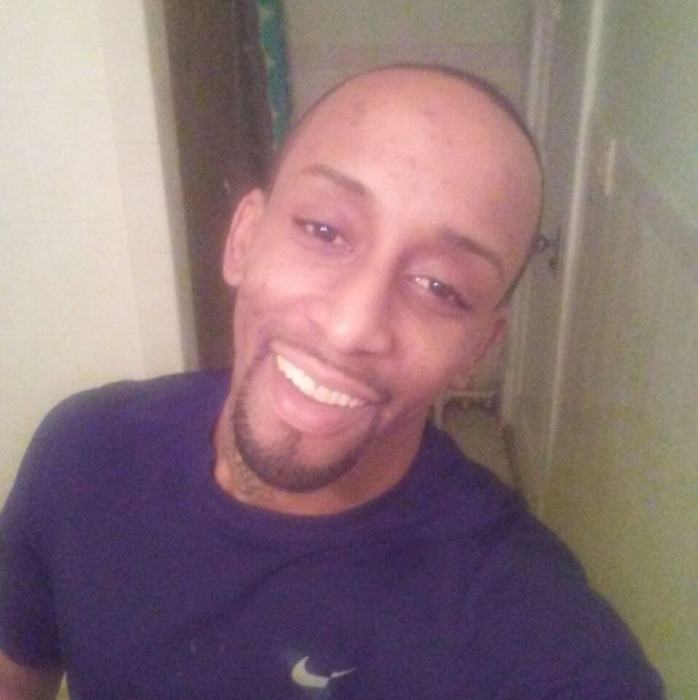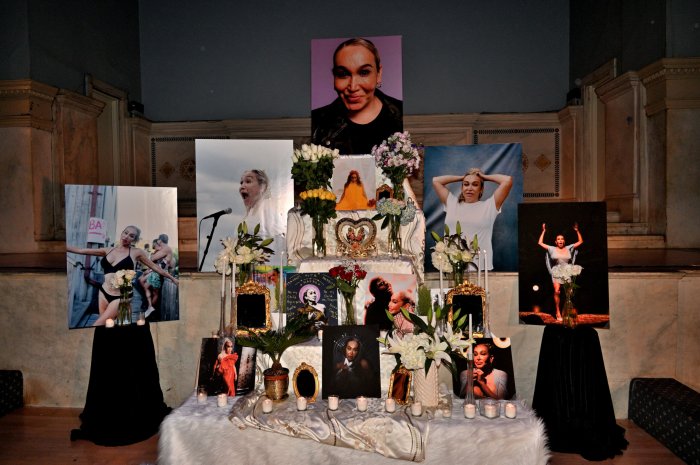Renato Seabra the week he killed Carlos Castro in early 2011. | MANHATTAN DISTRICT ATTORNEY
The accused killer of Carlos Castro told a defense expert that there was a time during the 2011 murder when he knew that what he was doing was wrong and he attempted suicide.
“I didn’t think it was wrong, I didn’t think it was good or bad,” Renato Seabra told Roger Harris, a psychiatrist who was hired by the defense, months after the killing. “Then I realized the bad thing I had done and I tried to kill myself.”
Seabra was quoted in a report Harris prepared and read from in Manhattan Supreme Court on November 16.
Seabra, now 23, is arguing that he was legally insane and did not know the difference between right and wrong when he strangled, beat, and castrated the 65-year-old Portuguese TV personality in a Manhattan hotel room.
The defense and prosecution agree that Seabra killed Castro, so the only issue for jurors to decide is whether the younger man intended to kill Castro, as the prosecution charges, or whether he is not guilty by reason of insanity.
The defense has put on two experts, Harris and psychologist Jeffrey Singer, who testified about Seabra’s medical records from St. Luke’s Roosevelt Hospital, where he was first treated for mental illness on January 7 just hours after killing Castro, and from a Bellevue Hospital psychiatric ward, where he was held until his transfer to Rikers Island three months later. Both experts interviewed Seabra and performed some testing on him.
Citing the records, the expert’s opinions, and the gruesome nature of the crime, the defense wants the jury to infer that Seabra was insane at the time he committed the crime and cannot be held legally responsible.
The attack on Castro lasted for roughly an hour and left Seabra and the hotel room covered in blood. The moment when Seabra realized he had done “the bad thing” came when Castro was still alive so it preceded the younger man’s final, fatal attack on the older man.
Questioned by Rubin M. Sinins, who is defending Seabra with David Touger, Harris dismissed that recognition on Seabra’s part as fleeting and unimportant.
“At best, it was momentary,” Harris said. Seabra has given inconsistent reports about what occurred in the hotel room and about what he was thinking when he committed the crime.
Seabra faces a single count of second-degree murder that alleges he intended to kill Castro. The prosecution contends Seabra was using Castro to advance his modeling career and for money. In the prosecution’s story, Seabra flew into a rage and attacked Castro when the older man said their three-month-long relationship was at an end and they would be returning to Portugal early.
The prosecution is relying on the expert testimony of Dr. William Barr, the director of a neuropsychology unit at the NYU Langone Medical Center, who concluded that Seabra was sane at the time of the attack. Barr suggested Seabra’s later psychological symptoms resulted from the horrific murder he committed and said he could not exclude the possibility that Seabra may be faking his symptoms.
Harris said Barr was the only professional among those who interviewed or treated Seabra who held that view and pointed to the treatment record and medications he was given as evidence of how convinced doctors at Bellevue were that he was ill.
“His behavior is so problematic that they have to medicate him against his will,” Harris said. “That they are medicating him against his will speaks very loud.”
While the defense has not said that the intimate relationship between Seabra and Castro played a part in Seabra’s later mental state, it appears they want the jury to conclude that it did. As Singer did, Harris implied that it was a contributing factor. The younger man understood that he was having sex with Castro in exchange for gifts and help with his modeling career, the psychiatrist said.
“I think he was naive that he would be able to sustain that,” Harris said. “I think he underestimated the impact it would have on him… He thought he would be able to endure the cost of it.”
Seabra later said that he was “grossed out” by the sex and “He reported that he did not like having sex with Mr. Castro,” Harris said.
After the killing, Seabra said he was acting on instructions from God when he killed Castro, though he did not tell police that in a statement he gave roughly 36 hours after the crime.
The trial, which will resume on November 27, was delayed by a week due to Hurricane Sandy and then the Manhattan courts remained closed for a week after the storm. The trial’s length, roughly two months, appears to be trying the patience of everyone involved.
On November 15, Daniel P. FitzGerald, the trial judge, instructed jurors that they are not to discuss the case. As he does not normally give that instruction, it suggests jurors have been heard doing that.
During a bench conference on November 15, FitzGerald, who is known for giving attorneys great latitude in trying their cases, grew visibly angry with Touger and said loudly, “Mr. Touger, please stop it.”
FitzGerald and Maxine Rosenthal, who is prosecuting the case with Jung Park, have tangled previously. As they argued over a ruling he made on November 13, FitzGerald instructed the court reporter to not record her comments when they were both speaking.
“Ms. Rosenthal has a habit in this case and perhaps in other cases of talking over judges,” FitzGerald said. “Some day, Ms. Rosenthal, when you wear the black robe, you can make all the rulings you want.”
Seabra has also taken to not appearing in court. On November 13, FitzGerald told him that if he continued talking in court he would be removed. Seabra later said he found listening to the testimony about his mental state difficult and he opted to stay in a court holding cell.


































